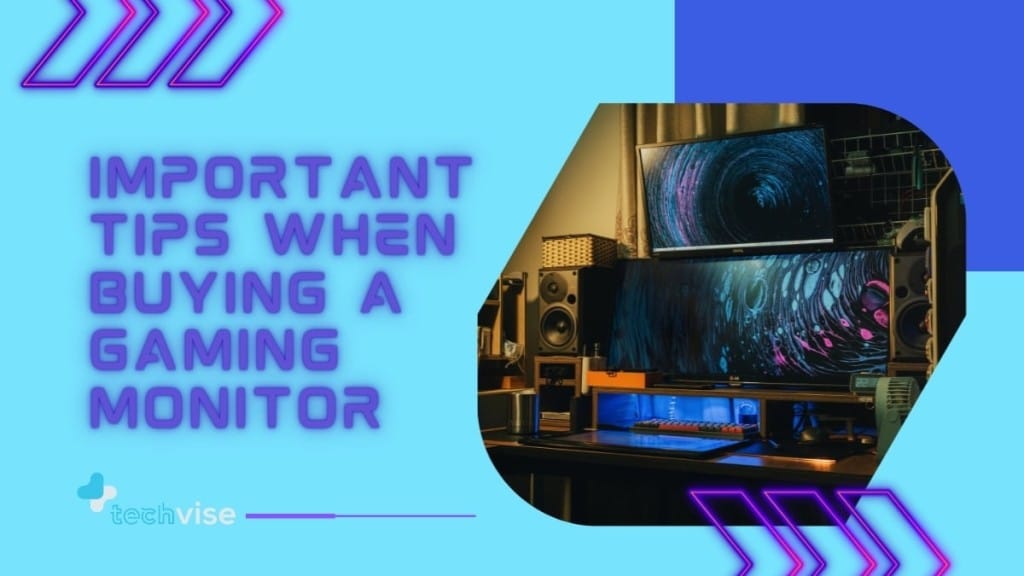So you finally got enough money to buy yourself a powerful new gaming monitor that will go very well with your PC or console. But the problem is, you don’t know where to look and what to look out for. Will your GPU work in sync with the screen? Is the monitor you’re going to buy cause bad screen tearing? We’re here to find out.
In this article, we’ll give you essential keys to know what you should be mindful of when purchasing a brand-new gaming monitor. If you do know what you’re already looking for, you should definitely look up on some of the best monitors to go hand-in-hand with your powerful PC– or you could get a monitor that can be overclocked to get smoother performance for free. But is overclocking worth it? It definitely is, considering it’s easy and free.
Right, let’s get on to it, shall we?
1. Refresh Rate is Everything
Whatever you do, the most important aspect among anything in a computer is the refresh rate. Why? Because the higher the refresh rate, the better it displays your game properly. This is especially a priority for competitive players, particularly on online gaming. Allow us to explain furthermore:
You see, a screen with at least 144Hz can hold out lots of frames per second on display based on your PC’s performance. If you find yourself with a powerful PC, then you shouldn’t be going for a 60Hz monitor. Here’s what happens: as your PC delivers video frames, your PC processes all those for you to see. If the PC can bring about 120 fps but your monitor can only handle until 60, then that sync becomes delayed, causing it to “tear up” the screen.
Before you ask yourself if you need 4K or 1080p instead, ask yourself if the monitor has at least 144Hz. Sure, there are 240Hz monitors right now in the market but trust us, you won’t need it… not just yet. Not until PC hardware manufacturers can come up with a processing power that can deliver up to 240 fps. Also, a 144Hz monitor costs significantly lesser than a 240Hz display.
“But what about for PS4, Xbox One or Switch,” you ask? Well, a 60Hz gaming monitor should be enough since consoles can only process up to 60 fps.
In short, higher refresh rate, lower latency and input lag – a must for aspiring pro players and hardcore online competitors.
2. 4K Resolution Isn’t So Important
Unless you’re that one guy that says “graphics over everything”, 4K is just secondary. While it may showcase every detail in the game, that doesn’t matter when the refresh rate is low.
The problem here is that the more resolution, the lower the refresh rate. That is, of course, you find yourself a 4K monitor with 144Hz but, we kid you not, that costs barely as your PC. Unless you got the money, go for it. But if not, it’s practically safer to buy a 1080p or 2K resolution monitor that delivers 144Hz.
3. Know the Ideal Size
Long story short, it’s 27” or nothing. 27” is the ideal scale for your eyes to look at the whole image within the monitor. Anything higher than that and you’ll find yourself moving your eyes and even your whole head to spectate what’s in front of you. 24” to 27” are the best sizes.
There are the extra wide curved monitors available but on a debatable scale, they serve better as multitasking displays for work or streaming than gaming. Sure, it’s also good for single player games but when you’re in a game where reflexes matter like Call of Duty, Overwatch, and Apex Legends, you better keep a monitor that doesn’t make you move your whole head to look.
To summarize it all, buy a 24-27” monitor that offers at least 144Hz like the ASUS ROG Swift PG279QZ when you’re on PC or the Samsung CHG70 Series if you fancy a curved monitor. 60Hz is good enough for any console like the LG 24M47VQ. A great 4K monitor like Dell’s Ultra-sharp U2718Q is optional but not highly necessary. Higher refresh rate means smoother game play and lower latency. Remember those.
Author: Brian is the founder of PCGuide and also a PC enthusiast. He has always been around computers since he was 8. After discovering he had a burning interest in computers, he aims to help the entire community of gamers by dedicating his time and life to help gamers and computer enthusiasts alike. Through his work, he wishes to help readers choose the best products and make the smartest investments.

